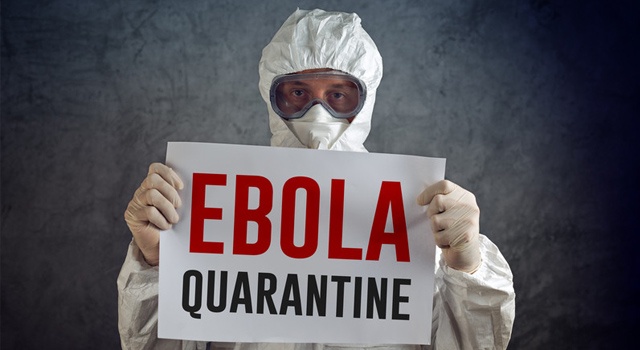40,000 Ebola deaths prevented
Forty-thousand lives were saved by the global response to the Ebola crisis in Sierra Leone, but many more deaths would have been prevented if aid had been given more quickly.
Thatís the conclusion of research by the London School of Hygiene and Tropical Medicine published in PNAS, Proceedings of the National Academy of Sciences of the United States of America. It explains the likely effect of a delay in providing international aid.
The researchers estimate that Britain prevented 56,000 people contracting the disease by donating more than £100m last year. The money helped to establish almost 3,000 hospital beds during the summer.
However, they say 12,500 more people could have been saved from infection if the beds had been available just one month earlier.
The UK government says it responded quickly, and the international community could have done more to help.
The Public Accounts Committee appears to agree with the researchers' findings though; in February the Committee said money had been released too slowly to deal with the crisis effectively.
The World Health Organization (WHO) came in for criticism as well, with allegations that it was also slow to act.
System Overwhelmed
Using a mathematical model, the researchers estimated how many cases of Ebola were prevented by foreign aid that paid for treatment centres. The disease is highly infectious, killing more than 50 per cent of people who are infected. The centres allowed for both care and quarantine.
Sierra Leoneís health system was unable to cope with the sheer number of cases. From September last year more than 2,700 treatment beds were introduced. These were in Ebola holding centres, community care centres and treatment units.
The outbreak began in March last year, and the West African countries most affected have just recorded their first week with no new cases.
A spokeswoman for the Department for International Development, which has committed £427m to defeating the disease, said: "Britain has been at the forefront of the international response to Ebola in Sierra Leone.
"By deploying NHS medics and military personnel and building treatment centres across the country, our swift action helped save countless lives and contain the spread of the disease."
Meanwhile, Nurse Pauline Cafferkey remains in a "serious condition" in Londonís Royal Free Hospital after being readmitted to the isolation unit where she was previously treated for Ebola.
The Guardian is reporting that health officials have imposed temperature checks twice a day, as well as travel restrictions, on 58 people who had close contact with her.
More on this story:








